David Lynch, Visionary Filmmaker And Creator Of ‘Twin Peaks,’ Dead At 78
David Lynch, the writer-director whose hallucinogenic films and television shows such as “Eraserhead,” “Mulholland Drive,” and “Twin Peaks” reveled in dreams and darkness, in revealing the mysterious and the sinister teeming just below the surface of ordinary white-picket-fence America has died. He was 78.
New Yorker film critic Pauline Kael called David Lynch “the first populist surrealist — a Frank Capra of dream logic” for his keen ability to bridge mainstream filmmaking and arthouse success.
Lynch’s family announced his death on his Facebook page on Thursday. “There’s a big hole in the world now that he’s no longer with us,” they wrote. “But, as he would say, ‘Keep your eye on the donut and not on the hole.’ It’s a beautiful day with golden sunshine and blue skies all the way.”
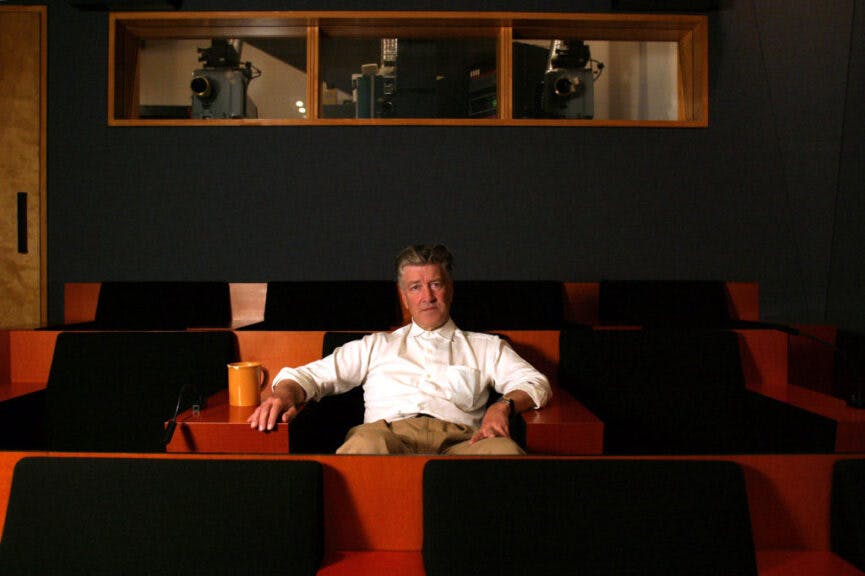
Gilles Mingasson/Getty Images
Lynch revealed in an interview with Sight and Sound in 2024, that he was suffering from emphysema after many years of smoking, was housebound, and could only direct any future films remotely. He later posted a statement on X amid speculation about his health and career, writing, “I am filled with happiness, and I will never retire.”
Lynch’s smoking habit was almost literally lifelong. A native of Missoula, Montana, Lynch grew up in rural Idaho and Washington and began smoking at the age of 8. He stopped smoking in 2022 after needing supplemental oxygen for anything more difficult than walking across a room and in an interview with People Magazine last year, Lynch said although the consequences of smoking have been “a big price to pay, I don’t regret it. It was important to me. I wish what every addict wishes for: that what we love is good for us.”
A painter turned avant-garde filmmaker, Lynch debuted his first feature “Eraserhead” in 1977. Shot over several years, the black-and-white surrealist horror film tells the story of a bewildered man grappling with the anxieties of fatherhood after the birth of his sickly, grotesque child—a mutant being that scarcely resembles a human infant.
Initially debuting to limited fanfare, “Eraserhead” gradually built a devoted following through extended runs as a midnight movie, solidifying its status as a cult classic.
Released three years before Stanley Kubrick’s 1980 horror classic “The Shining,” “Eraserhead” left an indelible mark on the influential director, who cited Lynch’s debut feature as one of his favorite films. So captivated was Kubrick by Lynch’s unnerving vision that he required his actors and film crew to watch “Eraserhead” before filming started on “The Shining” so that everyone on set was on the same tonal page.
Another enthusiastic fan was comedian Mel Brooks, who, after seeing “Eraserhead,” hired Lynch to direct his first true Hollywood picture, “The Elephant Man” in 1980. Brooks called Lynch “Jimmy Stewart from Mars,” for his spectrum of wild ideas and dressing as if he had stepped right out of the 1950s, with a messy pompadour and simple outfits of slacks and white dress shirts worn without a tie, buttoned all the way to the top.
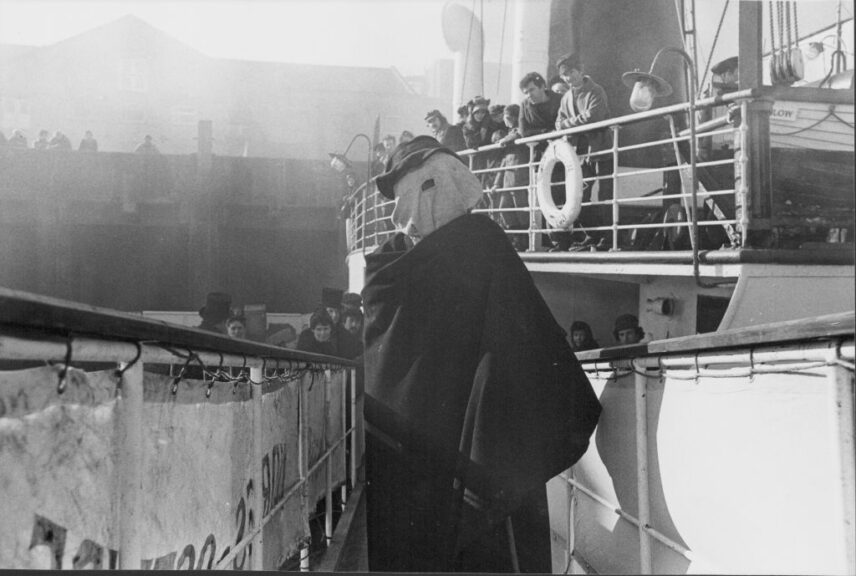
‘The Elephant Man’, 1980. (Photo by Stanley Bielecki Movie Collection/Getty Images)
“The Elephant Man” proved to be Lynch’s mainstream breakthrough. A poignant film (also in black-and-white) starring Anthony Hopkins and John Hurt, and based on the true story of a severely deformed British man, the movie garnered widespread acclaim and became a hit at the box office. It was nominated for eight Academy Awards, including two for Lynch.
Lynch’s films were not always successful, however, or well received. After receiving several directing offers post “Elephant Man” and turning down an opportunity from George Lucas to direct “Return of the Jedi,” Lynch opted instead to make an adaptation of the space opera “Dune” from the science-fiction novel by Frank Herbert. The attempt to make a ‘Star Wars for adults’ was a $40 million fiasco and the movie was named by Roger Ebert as the worst of 1984. Plans for two sequels were quickly scrapped.
Lynch roared back in 1986 with his one of his signature movies, “Blue Velvet,” an erotic detective story that peels back the placid exterior of a sweet-as-cherry-pie small town in North Carolina to reveal a seething underworld of dark surreal violence and depravity.
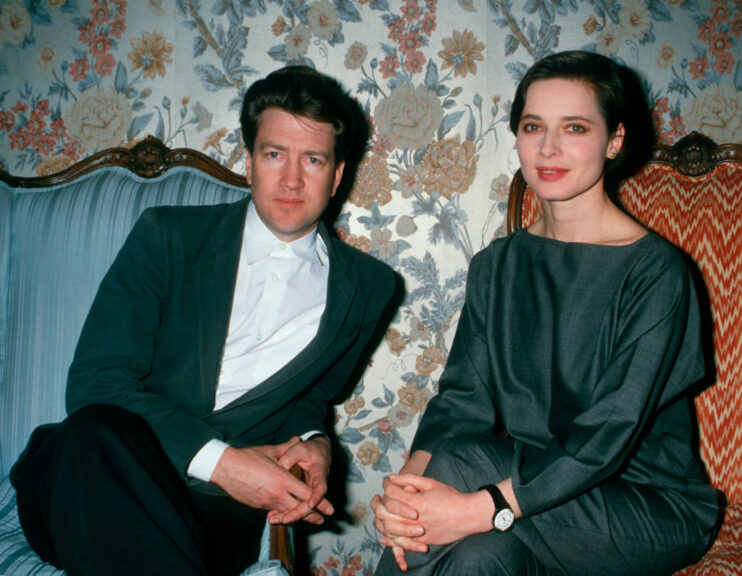
Ron Galella, Ltd./Ron Galella Collection via Getty Images
The movie plays as if directed by a psychopathic Norman Rockwell and polarized critics for its unsettling blend of innocence and white-picket-fence whimsy, brimming over with sexual violence and perverse evil.
Mr. Lynch’s follow-up, the highly controversial albeit forgettable, “Wild at Heart,” a sexed-up, graphically violent road movie starring Laura Dern and Nicolas Cage as a young couple on the run in the American Southwest, won the Palme d’Or at Cannes in 1990. It struck many critics as erratic, cartoony, self-indulgent and, despite some inspired moments, pointless.
In 1990, Lynch with co-creator Mark Frost ushered in a network TV revolution with their cutting-edge series, “Twin Peaks.” The show is an eerie mystery drama about the murder of high school student Laura Palmer and the investigation by an eccentric FBI agent played by Kyle MacLachlan. It is the spiritual spinoff of “Blue Velvet” with Lynch again illuminating the sinister underbelly of Apple Pie America, pitting ordinary good people against depraved and supernatural evil — Andy Griffith vs. Charles Manson — in perhaps Lynch’s most popular work.
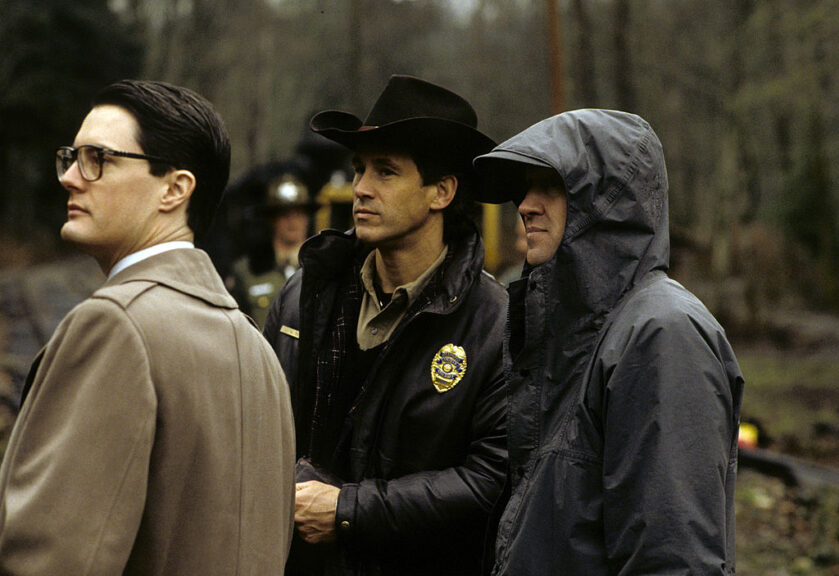
TWIN PEAKS – Pilot – “Northwest Passage” – Airdate: April 8, 1990. (Photo by ABC Photo Archives/Disney General Entertainment Content via Getty Images)
After 1991, however, it seemed as though Lynch could do nothing right. Viewership for season two of “Twin Peaks” fell off a cliff after the ABC Network insisted on an early season reveal of Laura Palmer’s killer and as Lynch himself seemed to lose interest in the show. Throughout the early 90s, he continued to produce multiple TV shows that were unsuccessful and disappeared from television almost immediately.
Lynch then made “Twin Peaks: Fire Walk With Me,” a 1992 film companion to the television series, which was ravaged by critics, with Vincent Canby of the New York Times writing, “It’s not the worst movie ever made; it just seems to be.”
Lynch’s lackluster 1997 neo-noir thriller “Lost Highway” a few years later didn’t fare much better.
A turn came in 1998 when Lynch improbably took on the challenge of directing a G-rated Disney movie and created what he called “my most experimental movie”, saying “Tenderness can be just as abstract as insanity.”
“The Straight Story” is a one of Lynch’s finest films. Based on the true story of 73-year-old Alvin Straight, who in 1994 rode his lawnmower more than 300 miles from Iowa to Wisconsin to reconcile with his ailing and estranged brother. It is a profoundly spiritual film about family, forgiveness and healing that celebrates America and the simple, unsentimentalized beauty of the rural Midwest. Perhaps the least likely to do it, Lynch shows the flip side of “Blue Velvet” and reframes America’s heartland as wholesome and its people as good and caring and true in a supremely moving triumph.
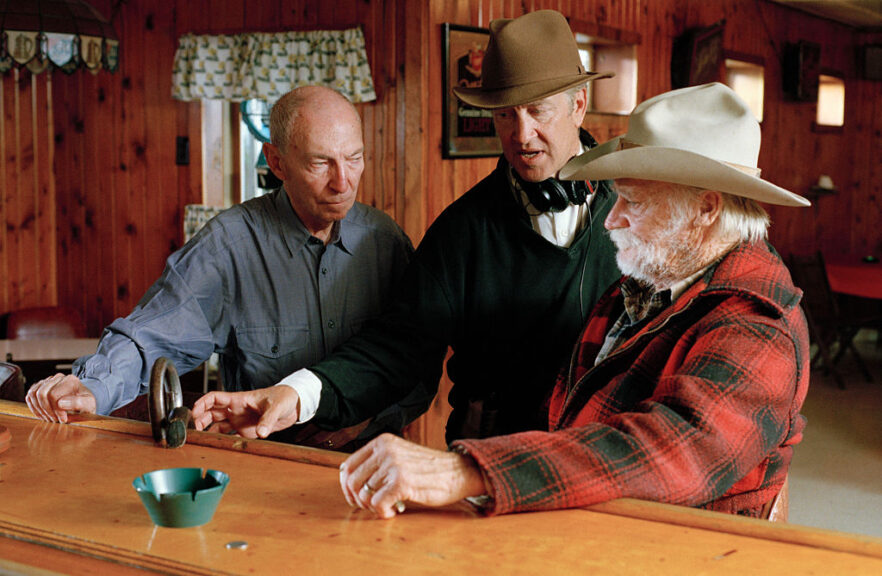
The Straight Story. (Photo by CHRISTOPHE D YVOIRE/Sygma via Getty Images)
Then came “Mulholland Drive,” Lynch’s much-heralded masterpiece regarded as one of the greatest films of all time, a poison-pen letter to Hollywood wrapped in Nancy Drew mystery.
That the movie became anything was something of a miracle itself, having started as yet another TV series that was killed by ABC. The pilot was filmed in 1999 and a year and a half later, Lynch cobbled together the original cast, shot additional footage and rounded out his twisted plot.
CELEBRATE #47 WITH 47% OFF DAILYWIRE+ MEMBERSHIPS + A FREE $20 GIFT
Lynch again used his favorite film structure, a mystery and an investigation. “Mulholland Drive” follows a budding actress who’s just arrived in Los Angeles as she forms a friendship with another young woman, who has become an amnesiac following a horrific car accident that left her for dead. The two women attempt to learn about the amnesiac’s mysterious past, leading them into an ever-stranger world of mobsters, actors, cops, singers and filmmakers.
In this, his most artistically and philosophically complex work, Lynch portrays “the Hollywood golden dream turning rancid, curdling into a poisonous stew of hatred, envy, sleazy compromise and soul-killing failure. This is the underbelly of our glamorous fantasies”, as Michael Wilmington wrote in the Chicago Tribune.
Following “Mulholland Drive,” Lynch’s filmic output sputtered in the final decades of his life and seemed to halt for lengthy stretches following his descent into near self-parody with his enigmatic last feature, “Inland Empire.” In 2017, he revived the “Twin Peaks” franchise with a baffling yet acclaimed season 3 for Showtime, which he described as an 18-hour movie.
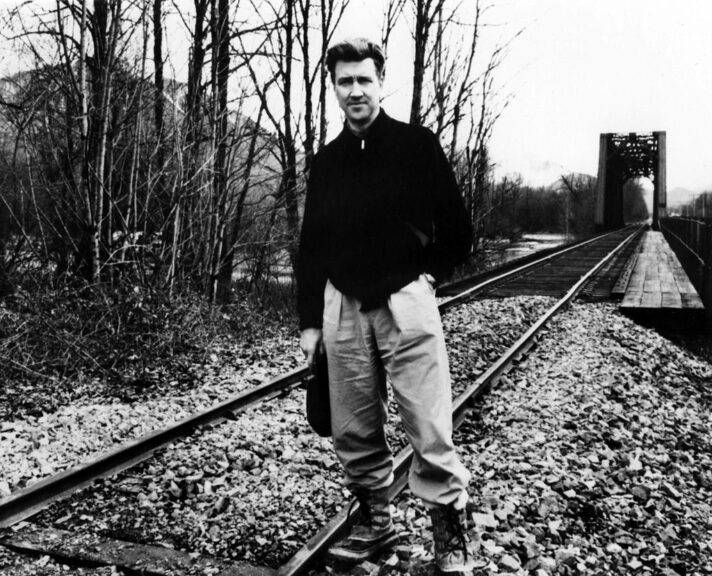
March 22, 1990. (Photo by ABC Photo Archives/Disney General Entertainment Content via Getty Images)
After that, Lynch then largely devoted himself to his paintings, his comic strip, his coffee-making business and transcendental meditation, the Buddhist practice he first embraced in his late 20s. He continued to frequent and praise the restaurant Bob’s Big Boy in Burbank, California.
It is now very quiet out in David Lynch land and all the dreams have floated off into the dark. The dancing dwarfs are idle and The Log Lady no longer shares clairvoyant visions transmitted by The Log. David Lynch has crossed over the River Styx. Requiescat in pace.
* * *
Matt Kemp is the Director of Post-Production at The Daily Wire.


